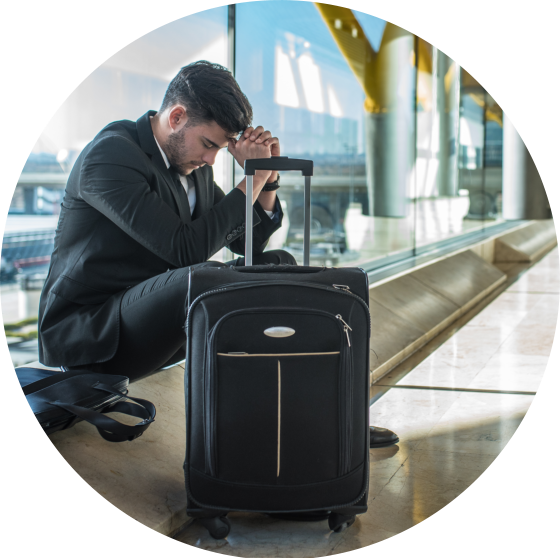Jet Lag
Last updated: December 2021
Home > Information & Support > Adults > Sleep Disorders >As a general guide the body takes roughly one day, for each time zone travelled, to adjust to a new cycle of day and night. So, you can probably travel through three hours without the need for specific counteractive measures (most of us can cope with going to sleep three hours later or earlier than normal once in a while) but more than that might need a bit of help. We also find it easier to adjust to travelling west than east as it lengthens rather than shortens our day.

As a general guide the body takes roughly one day, for each time zone travelled, to adjust to a new cycle of day and night. So, you can probably travel through three hours without the need for specific counteractive measures (most of us can cope with going to sleep three hours later or earlier than normal once in a while) but more than that might need a bit of help. We also find it easier to adjust to travelling west than east as it lengthens rather than shortens our day.
As the body clock’s natural cycle is slightly longer than a day we find it easier to adjust travelling west, back in time, as it lengthens our day, whereas travelling east shortens it. Difficulties with jet lag can be cured by using light. You need to re-set your body clock. Use 4am (departure point time) as a rough guide. Exposure to bright light just before this time will delay your clock; exposure to light a couple of hours after that time will advance it.
While a few people seem able to catch some zzz’s on a flight, most of us struggle. This, ultimately, leads to exhaustion, irritability and several nights trying to catch up – the last thing you want to do either on your holiday or when you return home.
Dealing with Jet Lag
Download full colour or print-friendly advice sheet
